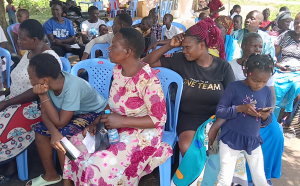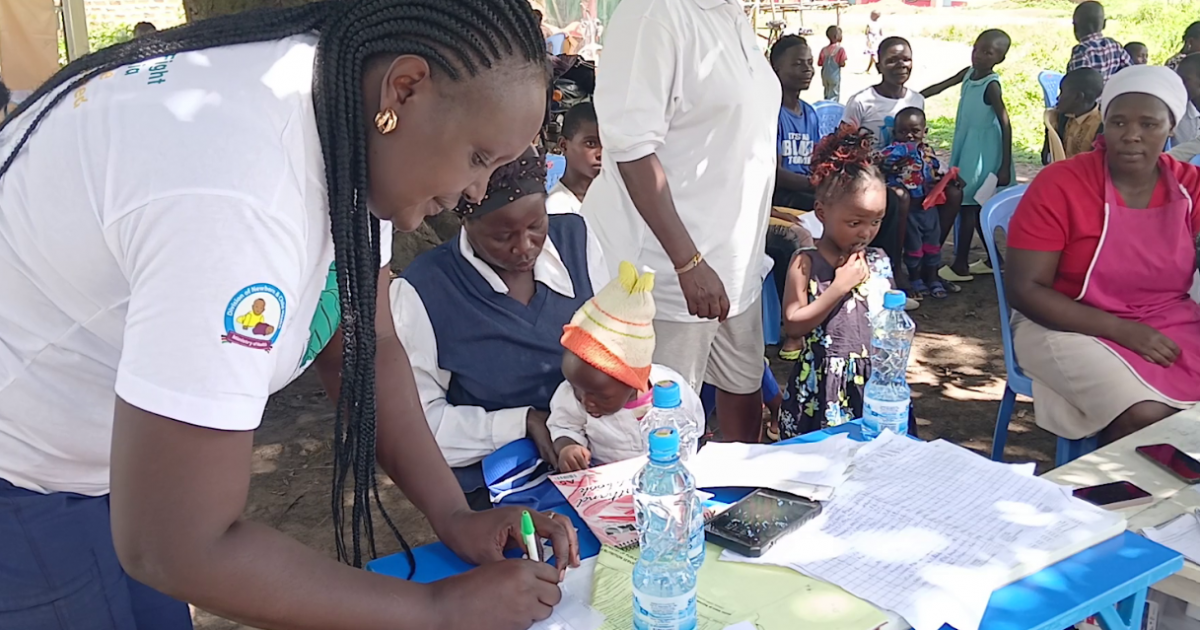As the world prepares to commemorate pneumonia day on November 12th, the disease remains a burden and leading killer in children below five years old in Busia County, a worrying trend that needs an urgent intervention.
In an effort to mitigate the impact of pneumonia among children, Busia County, in partnership with Nutrition International and the MAU group of hospitals, held a one-day free medical camp at the Roiko area in Malaba, where over 600 patients suffering from different ailments received free medical services and drugs.

Speaking to the press, Busia Director of Medical Services Dr. Janerose Ambuchi urged stakeholders in the health sector to scale up awareness prevention measures and regular check-ups among minors to reduce child mortality rates.
“We have organised a free medical camp in partnership with Nutrition International and the MAU group of hospitals to commemorate the world pneumonia, which is celebrated on November 12th, even as we champion to make Busia a free pneumonia county,” noted Dr. Ambuchi.
Among the services offered are general consultation, basic check-ups, diabetes, blood pressure, cervical and breast cancer screening, nutrition advice, dental, eye check-ups and physiotherapy and immunisations, among others.
“This camp is in line with universal health coverage, which advocates for universal health services to all, and our main focus is on counselling, testing, and treatment of both communicable and non-communicable diseases, which greatly affect lives, especially in paediatric groups,” she added.
Pneumonia could be caused by a number of infectious agents, including bacteria, which is the most common cause of pneumonia, and could occur on its own or after a viral infection like the flu or a cold.
Her sentiments were echoed by Grace Migambo, who noted that pneumonia is among the top 5 admissions in Busia hospitals, with over 5000 children admitted last year, even as she urged the parents to embrace high-impact interventions like immunisation and a healthy diet.
“We are trying to reach out to many of us who can’t access services at the private facilities or can’t afford even painkillers due to financial constraints,” said Migambo.
“As a county, we are trying to raise awareness of pneumonia as a public health issue and help prevent the thousands of avoidable child deaths from pneumonia that occur each year countrywide,” she added.
In Kenya, pneumonia causes between 8,000 and 10,000 annual childhood deaths, which represents about one in five mortality deaths.
“In Busia, we had 5000 cases of pneumonia admissions, out of which 1000 were severe pneumonia. This is why we have trained Community Health Promoters (CHPs) on the Integrated Community Case Management of Childhood Illnesses (ICCM) to be able to educate the community on health, how to manage mild illness, and referrals when needed,” noted Migambo.
She urged mothers to ensure the complete immunisation for their children and to be attentive to the general wellbeing of their families.
The County Programme Coordinator for Nutrition International, Juliet Nduta, urged the county to prioritise nutrition awareness for children under 5 years old to safeguard their healthy growth and development and help prevent future diseases.
“Good nutrition is the bedrock of child survival and development. Well-nourished children are better able to grow, learn, earn, and participate in their communities. They are also more resilient in the face of crises and diseases as they have a strong immune system,” said Nduta.
According to UNICEF, despite much progress, the triple burden of childhood malnutrition—undernutrition, micronutrient deficiencies, and overweight and obesity—remains unresolved in the Eastern and Southern Africa region (ESAR).
Stunting, a form of chronic malnutrition, affects over 30 per cent of children under 5 (26 million) in the region, jeopardising cognitive development and learning potential and posing long-term health and economic risks into adulthood.
By Absalom Namwalo





